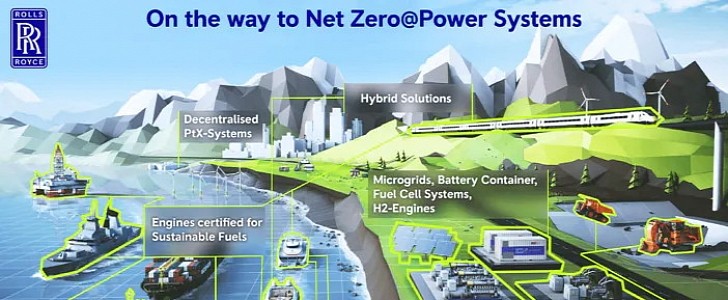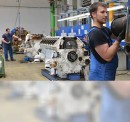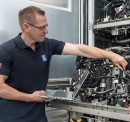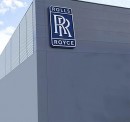Rolls-Royce is serious about achieving its net zero goal by 2050, as we can tell from its recently unveiled strategic plan for the following years. This complex and ambitious plan unfolds on multiple levels, involves a wide range of innovations and will have a powerful impact on others sectors in the automotive industry as well.
The first step in this ambitious plan, which will show the proper results as soon as 2023, is to certify the mtu (a well-known Rolls-Royce brand) engine products for the use of sustainable fuels. Starting from 2023, the new-generation Series 2000 and 4000 engines will run on second-generation bio-fuels and on E-fuels.
And, according to Dr. Otto Preiss, Chief Technology Officer and COO of Rolls-Royce Power Systems, these engines bring 85% of sales revenues, which show us the magnitude that this change will have.
The next step is switching to CO2-free fuel cell systems for the Rolls-Royce business unit. The fuel cell systems that everyone is talking about these days will be used to create power generation solutions with various applications, like compensating fluctuations in the public grid or providing emergency power in hospitals. Engineers at Rolls-Royce are also in the process of developing engines powered by hydrogen and methanol.
And it doesn’t stop here. The company’s Power Systems range will include solutions for battery energy storage, and hybrid propulsion systems that have numerous applications, such as the maritime and rail industries, where they are set to have a considerable positive impact.
One of the main objectives of the “Net Zero at Power Systems” program is to make the product portfolio more sustainable, and then steer the entire production and value chain towards zero emissions. As a comparison, the Power Systems products that were sold in 2019 will continue to generate harmful emissions throughout their active use period, reaching 109 million tons of greenhouse gases, more than what the entire Greater London region generates yearly. This shows the urgency for developing and applying sustainable solutions.
In less than 10 years, Rolls-Royce foresees an overall 35% reduction in greenhouse gas emissions throughout its power systems range, which will be a huge step towards the final goal of net zero by 2050.
And, according to Dr. Otto Preiss, Chief Technology Officer and COO of Rolls-Royce Power Systems, these engines bring 85% of sales revenues, which show us the magnitude that this change will have.
The next step is switching to CO2-free fuel cell systems for the Rolls-Royce business unit. The fuel cell systems that everyone is talking about these days will be used to create power generation solutions with various applications, like compensating fluctuations in the public grid or providing emergency power in hospitals. Engineers at Rolls-Royce are also in the process of developing engines powered by hydrogen and methanol.
And it doesn’t stop here. The company’s Power Systems range will include solutions for battery energy storage, and hybrid propulsion systems that have numerous applications, such as the maritime and rail industries, where they are set to have a considerable positive impact.
One of the main objectives of the “Net Zero at Power Systems” program is to make the product portfolio more sustainable, and then steer the entire production and value chain towards zero emissions. As a comparison, the Power Systems products that were sold in 2019 will continue to generate harmful emissions throughout their active use period, reaching 109 million tons of greenhouse gases, more than what the entire Greater London region generates yearly. This shows the urgency for developing and applying sustainable solutions.
In less than 10 years, Rolls-Royce foresees an overall 35% reduction in greenhouse gas emissions throughout its power systems range, which will be a huge step towards the final goal of net zero by 2050.







